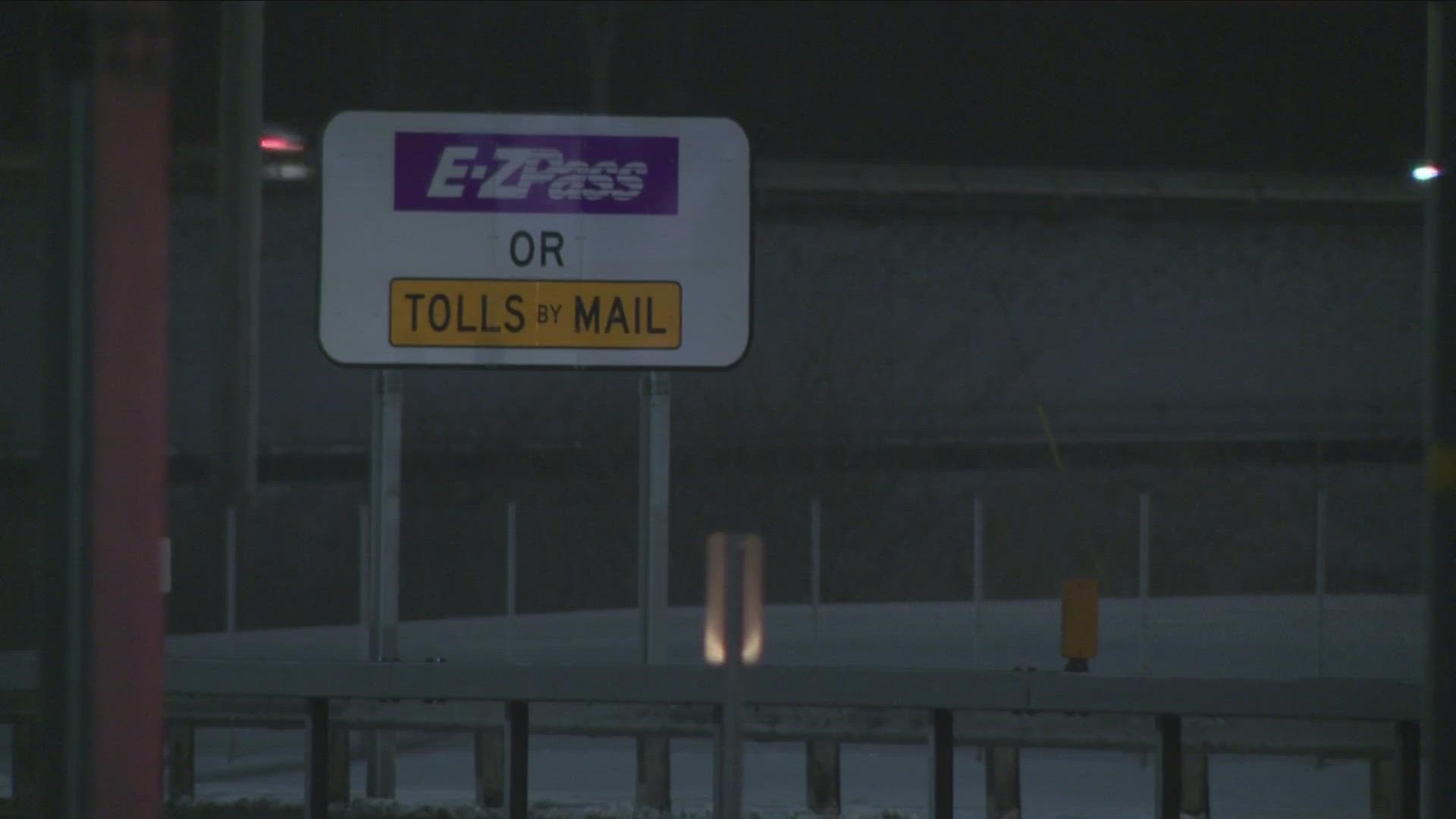ALBANY, N.Y. — In a 36-page report released by New York State Comptroller Thomas DiNapoli, he urges the Thruway Authority to increase revenues other ways instead of raising tolls.
DiNapoli's report says the Thruway Authority's finances have been greatly impacted by the cashless tolling system, construction of the Gov. Mario Cuomo Bridge, travel not returning to pre-pandemic levels, and debt issues.
“The Thruway Authority’s toll increase proposal comes at a time of extraordinary challenges for New Yorkers who are faced with rising costs for everything from food to shelter to gas,” DiNapoli said. “The Thruway should be more transparent with the public and disclose critical information, and identify and put in place all possible cost savings and alternative revenue actions to minimize costs to drivers."
The proposed 5% toll hike for E-ZPass users would go into effect on Jan. 1, 2024, with another 5% increase in 2027.
The comptroller's report indicates that the Thruway Authority's transition to cashless tolling has not yet produced any cost savings. The report also indicates that there have been substantial problems with the tolls by mail system resulting in erronious fines, and penalties for drivers.
The Thruway Authority, in a statement to 2 On Your Side, said in part:
"New Yorkers have two ways to pay for their highways – tax dollars or toll dollars. The Thruway Authority is operated and maintained solely as a user-fee system, and is not supported by any federal, state or local taxpayer funding."
The Thruway Authority's lengthy statement can be found at the bottom of the article.
DiNapli also questioned New York State's role in the Thruway Authority's toll hike plan. The report claims that NYS has used the Thruway Authority as a "backdoor borrowing" financing vehicle with "more than $5 billion in state-supported Thruway debt outstanding, hindering transparency."
"I've always felt the authority system in New York State is just not transparent," New York State Senator George Borrello said. "It really operates as a sort of a shadow government out there."
About 100 miles of the Thruway cuts through Borrello's Senate district. Borrello has had a longstanding issue with the Thruway Authority and the inability for the legislature to oversee it.
"The Thruway Authority as well as every other authority does not report backs legislature," Borrello said. "It is solely controlled by the governor."
DiNapoli recommended that the Thruway Authority resolve any systemwide issues with cashless tolling, and maximize non-toll revenue sources before raising the tolls.
Full statement by the NYS Thruway Authority:
“New Yorkers have two ways to pay for their highways – tax dollars or toll dollars. The Thruway Authority is operated and maintained solely as a user-fee system, and is not supported by any federal, state or local taxpayer funding. Thruway toll revenues are projected to decline $240 million [over 2020- 2025] from levels prior to COVID. The Authority did not receive any portion of the funds New York received as part of the federal Infrastructure Investment and Jobs Act nor any funds from other COVID Relief programs. The annual growth rate for Thruway operating budgets averaged less than two percent increases over the 2010 - 2022 period. Our toll revenue continues to go directly toward making the Thruway one of the safest highways in the nation. The toll adjustment proposal announced in December [when it takes effect] would be the first in 14 years for NY E-ZPass customers outside of the Mario Cuomo Bridge and toll rates on the Thruway will continue to be some of the lowest in the nation. We believe this modest proposal will begin to raise additional revenue to support the long-term financial needs of New York’s main transportation corridor and engine for economic activity. We would be happy to discuss this with the Office of the State Comptroller at any time.”

